We have seen tremendous strides toward gender equity and improved women’s health around the world, enabled through innovative technologies that empower and lift up women—but there’s still tremendous work to be done.
African women face a disproportionately high risk of dying from communicable diseases like HIV, tuberculosis, and malaria that are endemic in Africa, as well as a higher risk of pregnancy and birth complications than women outside the continent. At the same time, women are also the backbone of the health workforce in Africa, playing a vital role in supporting the health and wellbeing of their families and communities.
Yet, despite their unique understanding of the health challenges and needs of African women and communities, women in Africa are massively underrepresented in the field of research. Only 31 percent of professional researchers in sub-Saharan Africa are women, mirroring the 33.3 percent of researchers that are women globally. Moreover, women researchers have a harder time getting funding and support for their work.
This gender gap has profound consequences—it contributes to gaps in our understanding of women’s health issues and in our arsenal of tools to treat women. For example, pregnant women and other women of childbearing age have long been excluded from clinical trials, leading to insufficient or unsafe options for these populations for a variety of diseases and health areas.
To celebrate the achievements of African women, we’re spotlighting six African women researchers who have made significant contributions to global health research and supported the next generation of African researchers, including women.
Dr. Damaris Matoke-Muhia
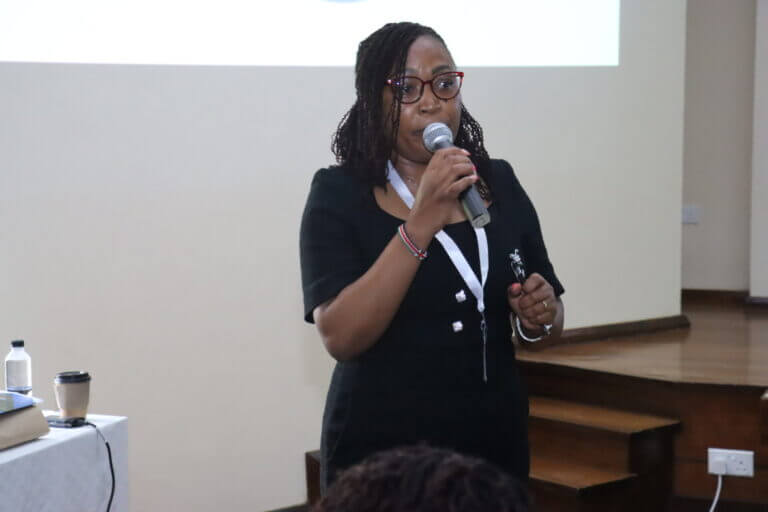 Dr. Damaris Matoke-Muhia is a Kenyan molecular biologist who is leading the fight against malaria and other vector-borne diseases in Africa. She currently serves as Entomology Division Head at the Kenya Medical Research Institute, as well as a Kofi Annan Global Health Leader Fellow at the Africa Centres for Disease Control and Prevention.
Dr. Damaris Matoke-Muhia is a Kenyan molecular biologist who is leading the fight against malaria and other vector-borne diseases in Africa. She currently serves as Entomology Division Head at the Kenya Medical Research Institute, as well as a Kofi Annan Global Health Leader Fellow at the Africa Centres for Disease Control and Prevention.
Dr. Matoke-Muhia has studied the behavior of mosquitoes for more than a decade, investigating why we’ve seen changes like shifts in biting habits, the emergence of a malaria vector previously endemic to Asia in Africa, and increasing resistance to insecticides, which have made these vectors harder to control, as well as researching new techniques to improve vector control.
Through her work with the Pan-African Mosquito Control Association, Dr. Matoke-Muhia has also helped train other African women to become experts and leaders in vector control. She uniquely understands the need for women, who are often the ones implementing tools like bed nets to protect their families and communities, to be at the forefront of research and control efforts: “It is important that we ensure equal representation, as far as leadership, because women speak from experience and from what has worked and not worked at community levels. Women should always be at the forefront at leadership levels, which is key to elimination of malaria on the continent.”
Dr. Monique Wasunna
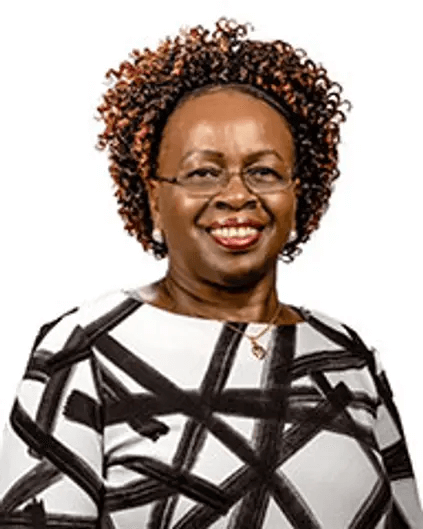 Dr. Monique Wasunna, a Ugandan-born doctor and researcher, has for decades been at the frontlines of African research into neglected tropical diseases. She worked for many years at the Kenya Medical Research Institute and currently serves as Africa Ambassador of the Drugs for Neglected Diseases initiative (DNDi), an organization she joined at its conception in 2003. In her current role, Dr. Wasunna engages African policy leaders and stakeholders to support research and development (R&D) collaborations that deliver new treatments for neglected disease. Throughout her career, Dr. Wasunna has led numerous clinical trials to find better treatment options for neglected diseases. At DNDi, her work helped the organization advance several groundbreaking new treatments for neglected tropical diseases, including an improved, affordable therapy for leishmaniasis and an all-oral cure for sleeping sickness, which replaced a toxic treatment that was the only previously available option.
Dr. Monique Wasunna, a Ugandan-born doctor and researcher, has for decades been at the frontlines of African research into neglected tropical diseases. She worked for many years at the Kenya Medical Research Institute and currently serves as Africa Ambassador of the Drugs for Neglected Diseases initiative (DNDi), an organization she joined at its conception in 2003. In her current role, Dr. Wasunna engages African policy leaders and stakeholders to support research and development (R&D) collaborations that deliver new treatments for neglected disease. Throughout her career, Dr. Wasunna has led numerous clinical trials to find better treatment options for neglected diseases. At DNDi, her work helped the organization advance several groundbreaking new treatments for neglected tropical diseases, including an improved, affordable therapy for leishmaniasis and an all-oral cure for sleeping sickness, which replaced a toxic treatment that was the only previously available option.
Dr. Wasunna is also a founding member of the Leishmaniasis East Africa Platform, which promotes clinical research and research capacity-building for leishmaniasis in the East Africa region. The platform has supported clinical trials that resulted in improved treatments for visceral leishmaniasis; trained hundreds of people in clinical care, research, and data management; and upgraded laboratories and hospitals across the region, enabling African researchers and research institutions to lead efforts to address neglected tropical diseases, like leishmaniasis, which are high concentrated on the continent.
As she says in a piece cowritten by Dr. Wasunna and Dr. Matoke-Muhia, “African women scientists have already proven that they can lead inclusive, groundbreaking research and shape global health solutions. But we cannot wait another five generations for gender parity.”
Dr. Delese Mimi Darko
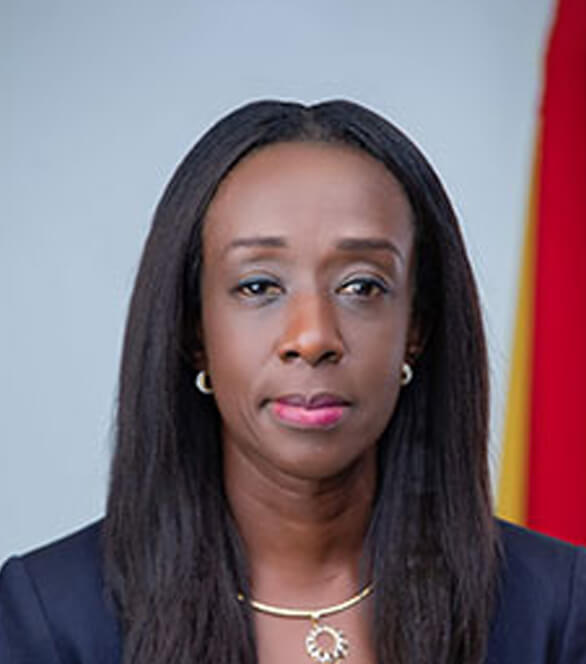 Dr. Delese Mimi Darko is a Ghanaian pharmacist who transformed her country’s regulatory and clinical trial ecosystem as head of Ghana’s regulatory agency and will now apply her expertise to the entire continent as she becomes the first-ever Director General of the African Medicines Agency, a recently established initiative to boost Africa’s regulatory capacity and ensure the safety and quality of medical products.
Dr. Delese Mimi Darko is a Ghanaian pharmacist who transformed her country’s regulatory and clinical trial ecosystem as head of Ghana’s regulatory agency and will now apply her expertise to the entire continent as she becomes the first-ever Director General of the African Medicines Agency, a recently established initiative to boost Africa’s regulatory capacity and ensure the safety and quality of medical products.
As Chief Executive Officer of Ghana’s Food and Drug Administration and in previous roles during her multiple decades working at the agency, Dr. Darko helped establish a strong, stable, and integrated national regulatory system, which has achieved the World Health Organization’s highest maturity level designation. She also pioneered clinical trial regulation in the country, helping make the country a clinical trial leader in the West African region. Dr. Darko has taken on various advisory roles throughout her career, furthering partnerships and initiatives that support R&D and regulatory harmonization across the continent.
In addition to helping transform the research and regulatory ecosystem of her country and now the broader African continent, paving the way for the next generation of African innovators, Dr. Darko has also highlighted the need for more female leaders: “Women [are] generally more altruistic and are therefore able to better consider other opinions and views. This makes us better team players and better leaders who, as a consequence, are able to take bold decisions based on wider consideration.”
Dr. Quarraisha Abdool Karim
Dr. Quarraisha Abdool Karim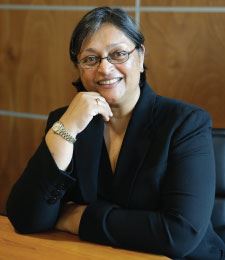 is a South African infectious disease epidemiologist who for decades has been a global pioneer in HIV/AIDS research, leading research that has shaped the global HIV prevention landscape, particularly focusing on technologies for women.
is a South African infectious disease epidemiologist who for decades has been a global pioneer in HIV/AIDS research, leading research that has shaped the global HIV prevention landscape, particularly focusing on technologies for women.
In 2001, Dr. Abdool Karim and her husband, also a world-class HIV/AIDS researcher, brought together a group of top HIV researchers to form the Center for the AIDS Program of Research in South Africa, which is today one of most influential HIV/AIDS research programs in the world.
Dr. Abdool Karim’s work demonstrating that antiretrovirals previously only used to treat HIV/AIDS could also be used to prevent sexually transmitted HIV laid the foundation for the HIV prevention approach, pre-exposure prophylaxis, that is widely used today.
Dr. Abdool Karim and her center’s work also led to the development of broadly neutralizing antibodies, antibodies that can neutralize a wide range of HIV variants, after discovering that one of the center’s study participants produced unique antibodies that not only attacked the strain of HIV she had but also targeted a broad swath of the HIV strains circulating globally. The isolation and recreation of these antibodies in a lab was a game changer—many of the most promising HIV cure strategies in development use them.
Dr. Abdool Karim has spoken about the unique potential of researchers from backgrounds underrepresented in science to tackle those often-ignored areas of health and scientific query, saying, “these were very much our problems in Africa that few others were working on…and if we waited for solutions from elsewhere, it wasn’t going to come. We had to take the lead.”
Professor Faith Osier
 Professor Faith Osier is a Kenyan malaria researcher and professor who currently serves as Chair in Malaria Immunology and Vaccinology at Imperial College London and President of the International Union of Immunological Societies, the first African and only second women to hold the role. Professor Osier has dedicated her career to studying the immune response to the malaria parasite, particularly looking at what parts of the response can help protect against infection, information that is key to designing more effective malaria vaccines.
Professor Faith Osier is a Kenyan malaria researcher and professor who currently serves as Chair in Malaria Immunology and Vaccinology at Imperial College London and President of the International Union of Immunological Societies, the first African and only second women to hold the role. Professor Osier has dedicated her career to studying the immune response to the malaria parasite, particularly looking at what parts of the response can help protect against infection, information that is key to designing more effective malaria vaccines.
Professor Osier helped develop a custom tool, the first of its kind in Africa, which includes more than 100 parasite proteins that are potential targets of antibody responses. The tool helps researchers quickly test which proteins are triggered in strong immune responses using blood samples from malaria patients, giving researchers a clue into what proteins they should target in future vaccines.
Professor Osier also built an international network of partners to share samples and epidemiological data on malaria parasites across Africa, which now spans 12 sites across seven sub-Saharan African countries. The network has assembled a dataset of 10,000 samples, each of which has been systematically analyzed, helping develop a map of parasite diversity across the region. The network has also helped develop malaria research capacity in Africa, providing training opportunities for students and early-career researchers. Professor Osier has spoken about her strong belief in the need to build African research capacity, “I think there has been a massive change in awareness or great momentum to support scientists in developing countries so that they can work on the problems that are facing their own countries, and I think it’s very important.”
Dr. Francine Ntoumi
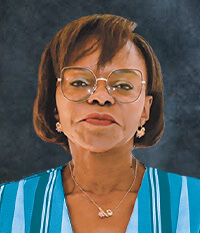 Dr. Francine Ntoumi is an award-winning Congolese molecular biologist who founded and currently serves as President and Executive Director of the Congolese Foundation for Medical Research in the Republic of Congo, as well as Professor of Molecular Epidemiology of Infectious Diseases at the Institute of Tropical Medicine at the University of Tübingen, Germany.
Dr. Francine Ntoumi is an award-winning Congolese molecular biologist who founded and currently serves as President and Executive Director of the Congolese Foundation for Medical Research in the Republic of Congo, as well as Professor of Molecular Epidemiology of Infectious Diseases at the Institute of Tropical Medicine at the University of Tübingen, Germany.
While Dr. Ntoumi’s own research has focused on malaria, tuberculosis, and COVID-19, she has also been a leading advocate of boosting African health research capacity and specifically supporting African women researchers throughout her career, as the first African leader of the Multilateral Initiative on Malaria and through her leadership at the Central African Network on Tuberculosis, HIV/AIDS and Malaria, which works regionally to boost research capacity.
“It might be difficult to convince Congolese girls they could be the next Marie Curie, but easier to convince them they can be me!” she said. “We have to banish this idea that only men can have ambition. If you are female and have scientific ability, you need to stand up.”
These incredible female scientists and many others have contributed to considerable strides in research into the biggest health challenges facing the African continent and helped elevate African researchers, particularly women researchers, paving the way for a healthier, more scientifically engaged future for Africa and African women.
Photo credits from top to bottom: Kenya Medical Research Institute, Drugs for Neglected Diseases initiative, Ghana Food and Drugs Authority, CAPRISA, Imperial College London, Congolese Foundation for Medical Research




 is a South African infectious disease epidemiologist who for decades has been a global pioneer in HIV/AIDS research, leading research that has shaped the global HIV prevention landscape, particularly focusing on technologies for women.
is a South African infectious disease epidemiologist who for decades has been a global pioneer in HIV/AIDS research, leading research that has shaped the global HIV prevention landscape, particularly focusing on technologies for women. 